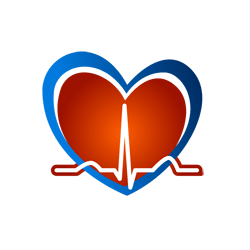The country is facing even more cuts across the health service this year; fears are growing that the loss of over 50,000 NHS staff will harm frontline services, leading to fewer doctors and nurses in the hospitals. The new Hypnotension programme for high blood pressure could make a significant impact on the NHS prescriptions bill; money that could be reinvested in frontline services.
High blood pressure (Hypertension) affects an estimated 30% of the population. That’s a staggering 16,000,000 people in the UK alone. Over 90% of this group have primary hypertension, which has no known medical cause.
The new Hypnotension approach uses cognitive and hypnotherapeutic techniques to deal with the lifestyle and emotional factors which contribute to high blood pressure, making it easier for people to take back control and stay motivated so the lifestyle changes stick.
Paul Howard, co-founder of ‘Hypnotension’ says: “If even more people with primary hypertension took simple steps to tackle the lifestyle factors that cause their high blood pressure, it would save the NHS millions of pounds on blood pressure medication, not to mention slashing the burden of stroke and heart disease.
“All the medical profession can do is manage the symptoms. For the patient this usually involves a lifetime of medication which is both expensive and involves some potentially serious side effects.
His colleague and co-founder, Rob Woodgate, adds: “Everyone with primary hypertension can do something to help themselves, whether it is cutting down on salt, losing a few pounds, or getting a little bit more exercise.
“Even small changes add up. Studies have shown that even if you only manage to lower your blood pressure by 2.5/1.4mmHg , you will still slash your risk of dying from a stroke by 12-14% and heart disease by 9-10%. That in turn will save the NHS millions in healthcare and drug costs.”
Research confirms that changes in lifestyle can have a big impact on high blood pressure. A study in 2004 showed that, within 12 weeks of making lifestyle changes, more than 60% of those with high blood pressure met their blood pressure goals, without the use of medication.
The National Institute for Health and Clinical Excellence (NICE), who develop the guidelines for high quality care in the NHS, also recognise the importance of lifestyle changes. In their latest clinical guideline (CG127, August 2011), they say:
“The current evidence cannot determine whether a lifestyle intervention is generally better than drug treatment for reducing blood pressure… Thus it seems important that patients are encouraged to try lifestyle changes before proceeding to or increasing drug therapy.”
The new Hypnotension programme is currently being rolled out across the country, and the creators believe it not only has the potential to save the NHS millions every year and help to cut GP waiting times, but more importantly, will assist sufferers of high blood pressure to make lifestyle changes which can significantly reduce their risk of heart disease, stroke, diabetes and high cholesterol.
There are specially trained Hypnotension practitioners throughout the UK.
